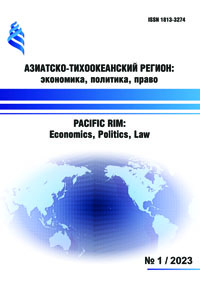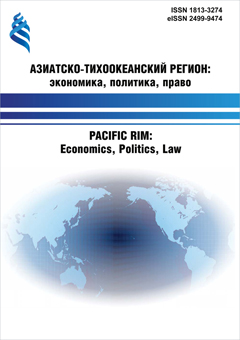ASEAN: PROBLEMS OF EFFECTIVENESS EVALUATION
DOI:
https://doi.org/10.24866/1813-3274/2023-1/15-26Keywords:
ASEAN, Asian regional institutions, ASEAN sceptics, ASEAN proponents, evaluating regional organizations, ASEAN effectiveness, regional institutions, indicators of effectiveness, ASEAN key indicators, regional asymmetryAbstract
The Association of Southeast Asian Nations is considered one of the most sustainable world organizations. Yet, the effectiveness of the Asian regional institution remains an issue of heated discussion, mainly due to theoretical pluralism commonly found in regional studies. Still, the variations of effectiveness evaluation results of ASEAN and other regional associations can arise from the lack of universal methodical approach to addressing this problem. This paper reviews major approaches to ASEAN effectiveness evaluation; assesses the association activities by conventional economic interdependence indicators. Also the ASEAN member states have been analysed by a number of non-economic criteria. Both quantitative indicators of the official statistics and indexes and ratings have been used for the analysis; the author highlights pros and cons of such criteria. The disproportion within the ASEAN regional area is emphasized as the key feature reflecting the level of the association effectiveness. The relevance of this study is specified by the need to improve the toolbox of the regional organization effectiveness evaluation; by increasing demands to ASEAN as an integration association. Based on papers of Russian and foreign researchers, the author stresses that, under the present conditions, the European experience cannot be the only criterion for the integration quality; this trend to analyze non-economic features of ASEAN only by western standards can lead to a distorted picture of the association effectiveness. Given their specific features, the integration associations are fairly multi-faceted, so, the evaluation of the effectiveness of regional institutions may be based on various theoretical and methodical approaches: such diversity ensures sounder assessment.



